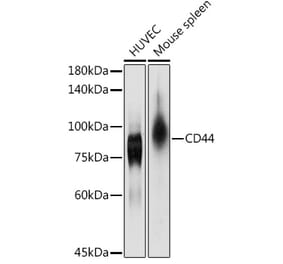+1 (314) 370-6046 or
Contact Us - Argentina
- Australia
- Austria
- Bahrain
- Belgium
- Brazil
- Bulgaria
- Cameroon
- Canada
- Chile
- China
- Colombia
- Croatia
- Cyprus
- Czech Republic
- Denmark
- Ecuador
- Egypt
- Estonia
- Finland
- France
- Germany
- Greece
- Hong Kong
- Hungary
- Iceland
- India
- Indonesia
- Iran
- Ireland
- Israel
- Italy
- Japan
- Kazakhstan
- Kuwait
- Latvia
- Lithuania
- Luxembourg
- Macedonia
- Malaysia
- Malta
- Mexico
- Monaco
- Morocco
- Netherlands
- New Zealand
- Nigeria
- Norway
- Peru
- Philippines
- Poland
- Portugal
- Qatar
- Romania
- Russia
- Saudi Arabia
- Serbia
- Singapore
- Slovakia
- Slovenia
- South Africa
- South Korea
- Spain
- Sri Lanka
- Sweden
- Switzerland
- Taiwan
- Thailand
- Turkey
- Ukraine
- UAE
- United Kingdom
- United States
- Venezuela
- Vietnam



![Immunohistochemistry - Anti-CD44 Antibody [rHCAM/918] - BSA and Azide free (A253893) - Antibodies.com](https://cdn.antibodies.com/image/catalog/253/A253894_1.jpg?profile=product_alternative)
![Immunohistochemistry - Anti-CD44 Antibody [BU75] (A250708) - Antibodies.com](https://cdn.antibodies.com/image/catalog/250/A250709_1.jpg?profile=product_alternative)
![Immunohistochemistry - Anti-CD44 Antibody [BU75] - BSA and Azide free (A253888) - Antibodies.com](https://cdn.antibodies.com/image/catalog/253/A253889_1.jpg?profile=product_alternative)

![Flow Cytometry - Anti-CD44 Antibody [MEM-85] (A85615) - Antibodies.com](https://cdn.antibodies.com/image/catalog/85/A85618_109.jpg?profile=product_alternative)
![Western Blot - Anti-CD44 Antibody [MEM-263] (A85673) - Antibodies.com](https://cdn.antibodies.com/image/catalog/85/A85675_150.jpg?profile=product_alternative)
![Immunohistochemistry - Anti-CD44 Antibody [156-3C11] (A250711) - Antibodies.com](https://cdn.antibodies.com/image/catalog/250/A250711_1.jpg?profile=product_alternative)

![Immunohistochemistry - Anti-CD44 Antibody [156-3C11] - BSA and Azide free (A253891) - Antibodies.com](https://cdn.antibodies.com/image/catalog/253/A253891_1.jpg?profile=product_alternative)
![Immunohistochemistry - Anti-CD44 Antibody [HCAM/918] (A250716) - Antibodies.com](https://cdn.antibodies.com/image/catalog/250/A250716_1.jpg?profile=product_alternative)
![Immunohistochemistry - Anti-CD44 Antibody [HCAM/918] - BSA and Azide free (A253896) - Antibodies.com](https://cdn.antibodies.com/image/catalog/253/A253896_1.jpg?profile=product_alternative)
![Immunohistochemistry - Anti-CD44 Antibody [rHCAM/918] (A250713) - Antibodies.com](https://cdn.antibodies.com/image/catalog/250/A250714_1.jpg?profile=product_alternative)